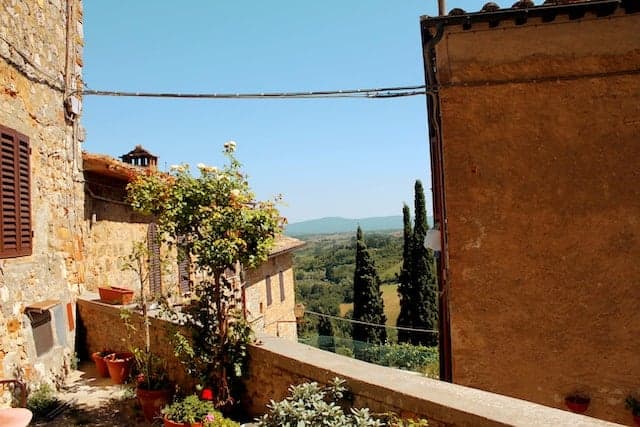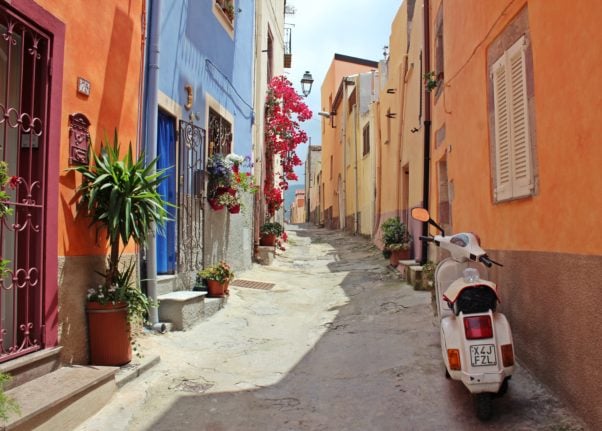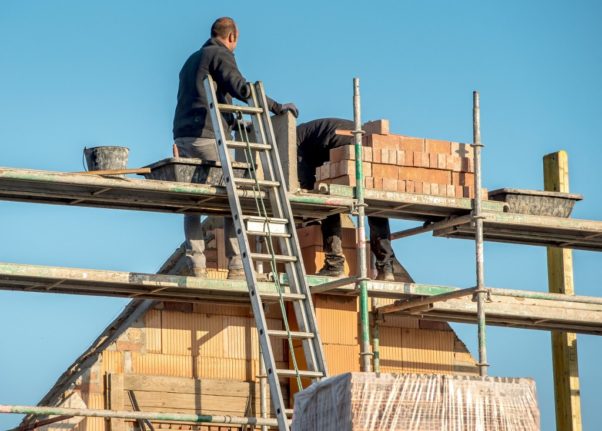Everything you need to know about having a second home in Italy

Buying property in Italy and spending long holidays in the Tuscan countryside, by the sea or in cities like Florence or Rome is the dream for many.
Being the owner of a seconda casa (second home) in Italy brings with it some specific legal and financial obligations, however it’s not always easy to find the information relating to your status.
Whether its taxes, visas, travel or property regulations, information for second-home owners is often hidden away while governments rarely prioritise those who are not resident in the country.
That’s why we've put together a guide to the most frequently-asked questions from second-home owners in Italy.
We also have an emailed newsletter specifically for Italian home owners so you can be kept abreast of everything you need to know, whether it’s a change in the tax rules or travel alerts.
To sign up, click HERE and tick 'Own a home in Italy?'
Visas
First things first, how long can you stay at your lovely Italian place? Here the key thing is what passport you hold.
If you have the passport of an EU country (including Ireland) then you’re one of the lucky ones and have no limits on how long you can stay in Italy (although there might be tax considerations, more on that later).
If you are a citizen of a non-EU country such as the UK, US, Canada or Australia then you have two choices – you can either limit your stays to 90 days in every 180 or get a visa.
READ ALSO: What type of visa will you need to move to Italy?
90 days – you can find a full explanation of the 90-day rule HERE, but bear in mind that it covers the whole of the Schengen zone, so you need to include in your count time spent in Italy, plus any trips to other Schengen zone countries, e.g. a weekend in Berlin or a beach holiday in Spain.
Visas – if you don’t want to be constrained by the 90-day rule, you will need to get a visa and apply for Italian residency once you arrive.
Here are the types of visa available to those wanting to spend more than 90 days at a time in Italy.
Bear in mind that not all countries benefit from the 90-day rule and citizens of certain countries – such as India – will need a visa for a visit of any length.
Reader question: Can I have residency in Italy and another country?
Income tax
Most second-home owners keep their tax residency in their home country and therefore do not need to complete the annual Italian tax declaration.
However if you intend to rent out your second home – for example on Airbnb – that means you have income in Italy and therefore may have to complete the Italian income tax declaration.
EXPLAINED: What are Italy’s rules and taxes for Airbnb rentals?
Bear in mind also that long stays in Italy and out of your home country will change your ‘tax residency’ status – more on that here.
Property taxes
Although most second-home owners won’t have to fill out the annual tax declaration or pay income tax, you will have to pay property taxes.
Taxes on second homes in Italy are inherently higher than those levied on primary residences. These include the ‘Imposta Municipale Unica’ (Unified Municipal Tax), the basic rate of tax that has to be paid to the Italian state based on the value of the property, and the Tassa sui rifiuti (waste tax) for rubbish collection.

You won’t get a bill for this, just a deadline of when to pay and what coefficient your type of property is to be able to do the sums. IMU needs to be paid for each month and is due twice a year, in June and December.
READ ALSO: What taxes do you need to pay if you own a second home in Italy?
Utility bills are also sometimes higher for second home owners - read more about the potential hidden costs of buying property in Italy HERE.
Status
There’s a popular misconception that owning property in Italy and paying property taxes gives you extra rights in terms of travel or immigration, but in fact that is not the case.
As we saw during the pandemic, travel restrictions were divided into residents and visitors, with second-home owners falling under the same bracket as tourists. Likewise your immigration status is determined by whether you have a visa or an EU passport; owning property makes no difference.
Building bonuses
It's not all immigration red tape and tax woes - with its many abandoned properties in need of a little TLC, Italy offers property renovation and improvement 'bonuses' in the form of tax credits to property owners, including non-Italian second home owners.
These include tax incentives for those looking to make seismic improvements, ecobonuses aimed at encouraging energy upgrades in buildings, and the 'green bonus' relating to work on gardens, terraces and green areas in general.
You don't necessarily need to be resident in Italy to benefit - non-residents can transfer the tax credit to another party in return for a commission, such as tax credit institutes or banks, or can apply for a discount on your contractor's invoice (sconto in fattura), effectively trading your tax credit to the suppliers.
Property: Do you have to be Italian to claim Italy’s building bonuses?
If you've been thinking of buying property in Italy, you've likely read about the 'Superbonus 110', a post-pandemic stimulus which offered homeowners up to 110% deductions on expenses related to energy upgrades and reducing seismic risk.
Unfortunately the bonus has been so in demand that homeowners are stuck amid delays on many projects as construction companies struggle to keep up - and most of the deadlines for accessing the scheme have now passed anyway.
That doesn't mean you can't take advantage of Italy's ongoing property renovation benefits though, which are usually renewed or updated in some form each year in the annual budget.

Italy’s building bonuses may help with reconstruction costs. Photo by Philippe HUGUEN / AFP
Enjoyment
Lest much of this article seem overly negative, we should point out that many people have second homes in Italy and love them.
Property in Italy, especially in rural areas and small hill towns, is cheap compared to the UK or US, so buying a place here is not the preserve of the super rich.
Having your own place gives you a sense of permanence and many second-home owners become embedded in their local communities. Some people keep their Italian place purely for visits, while others eventually move to Italy full time, often after retirement.
See more of our articles about property in Italy on The Local.
Comments
See Also
Being the owner of a seconda casa (second home) in Italy brings with it some specific legal and financial obligations, however it’s not always easy to find the information relating to your status.
Whether its taxes, visas, travel or property regulations, information for second-home owners is often hidden away while governments rarely prioritise those who are not resident in the country.
That’s why we've put together a guide to the most frequently-asked questions from second-home owners in Italy.
We also have an emailed newsletter specifically for Italian home owners so you can be kept abreast of everything you need to know, whether it’s a change in the tax rules or travel alerts.
To sign up, click HERE and tick 'Own a home in Italy?'
Visas
First things first, how long can you stay at your lovely Italian place? Here the key thing is what passport you hold.
If you have the passport of an EU country (including Ireland) then you’re one of the lucky ones and have no limits on how long you can stay in Italy (although there might be tax considerations, more on that later).
If you are a citizen of a non-EU country such as the UK, US, Canada or Australia then you have two choices – you can either limit your stays to 90 days in every 180 or get a visa.
READ ALSO: What type of visa will you need to move to Italy?
90 days – you can find a full explanation of the 90-day rule HERE, but bear in mind that it covers the whole of the Schengen zone, so you need to include in your count time spent in Italy, plus any trips to other Schengen zone countries, e.g. a weekend in Berlin or a beach holiday in Spain.
Visas – if you don’t want to be constrained by the 90-day rule, you will need to get a visa and apply for Italian residency once you arrive.
Here are the types of visa available to those wanting to spend more than 90 days at a time in Italy.
Bear in mind that not all countries benefit from the 90-day rule and citizens of certain countries – such as India – will need a visa for a visit of any length.
Reader question: Can I have residency in Italy and another country?
Income tax
Most second-home owners keep their tax residency in their home country and therefore do not need to complete the annual Italian tax declaration.
However if you intend to rent out your second home – for example on Airbnb – that means you have income in Italy and therefore may have to complete the Italian income tax declaration.
EXPLAINED: What are Italy’s rules and taxes for Airbnb rentals?
Bear in mind also that long stays in Italy and out of your home country will change your ‘tax residency’ status – more on that here.
Property taxes
Although most second-home owners won’t have to fill out the annual tax declaration or pay income tax, you will have to pay property taxes.
Taxes on second homes in Italy are inherently higher than those levied on primary residences. These include the ‘Imposta Municipale Unica’ (Unified Municipal Tax), the basic rate of tax that has to be paid to the Italian state based on the value of the property, and the Tassa sui rifiuti (waste tax) for rubbish collection.

You won’t get a bill for this, just a deadline of when to pay and what coefficient your type of property is to be able to do the sums. IMU needs to be paid for each month and is due twice a year, in June and December.
READ ALSO: What taxes do you need to pay if you own a second home in Italy?
Utility bills are also sometimes higher for second home owners - read more about the potential hidden costs of buying property in Italy HERE.
Status
There’s a popular misconception that owning property in Italy and paying property taxes gives you extra rights in terms of travel or immigration, but in fact that is not the case.
As we saw during the pandemic, travel restrictions were divided into residents and visitors, with second-home owners falling under the same bracket as tourists. Likewise your immigration status is determined by whether you have a visa or an EU passport; owning property makes no difference.
Building bonuses
It's not all immigration red tape and tax woes - with its many abandoned properties in need of a little TLC, Italy offers property renovation and improvement 'bonuses' in the form of tax credits to property owners, including non-Italian second home owners.
These include tax incentives for those looking to make seismic improvements, ecobonuses aimed at encouraging energy upgrades in buildings, and the 'green bonus' relating to work on gardens, terraces and green areas in general.
You don't necessarily need to be resident in Italy to benefit - non-residents can transfer the tax credit to another party in return for a commission, such as tax credit institutes or banks, or can apply for a discount on your contractor's invoice (sconto in fattura), effectively trading your tax credit to the suppliers.
Property: Do you have to be Italian to claim Italy’s building bonuses?
If you've been thinking of buying property in Italy, you've likely read about the 'Superbonus 110', a post-pandemic stimulus which offered homeowners up to 110% deductions on expenses related to energy upgrades and reducing seismic risk.
Unfortunately the bonus has been so in demand that homeowners are stuck amid delays on many projects as construction companies struggle to keep up - and most of the deadlines for accessing the scheme have now passed anyway.
That doesn't mean you can't take advantage of Italy's ongoing property renovation benefits though, which are usually renewed or updated in some form each year in the annual budget.

Enjoyment
Lest much of this article seem overly negative, we should point out that many people have second homes in Italy and love them.
Property in Italy, especially in rural areas and small hill towns, is cheap compared to the UK or US, so buying a place here is not the preserve of the super rich.
Having your own place gives you a sense of permanence and many second-home owners become embedded in their local communities. Some people keep their Italian place purely for visits, while others eventually move to Italy full time, often after retirement.
See more of our articles about property in Italy on The Local.
Join the conversation in our comments section below. Share your own views and experience and if you have a question or suggestion for our journalists then email us at [email protected].
Please keep comments civil, constructive and on topic – and make sure to read our terms of use before getting involved.
Please log in here to leave a comment.